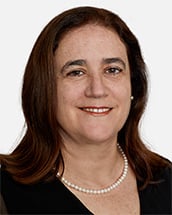In brief
17 December 2021 is the deadline for all Member States to transpose the new Whistleblower Protection Directive 2019/1937, which obliges businesses with over 50 employees to have a reporting channel.
It should be noted that the aim of these new regulations is to exploit the potential for whistleblower protection to strengthen enforcement and set standards for strong protection against any reprisals. The introduction of these regulations helps ensure a level playing field so the single market can function properly and companies can operate in an environment of fair competition by helping to prevent and detect irregularities.
These regulations contain a number of obligations and features that we can highlight:
- Reporting channels must allow for written and oral reporting, including via phone or other voice messaging systems, as well as in person if the whistleblower so requests.
- A maximum of three months is given to provide the whistleblower with follow-up of the report, to be counted from the date of the receipt.
- Any kinds of reprisals are forbidden and new measures are foreseen to ensure the protection of the whistleblower:
- Providing independent, accessible and free information and advice on the procedures and remedies available to protect against reprisals;
- Waiving liability for whistleblowers for violating disclosure restrictions;
- Making appropriate measures against reprisals available to whistleblowers, including interim measures.
While a uniform legal framework does not yet exist in Spain, it should be recalled that a number of the above obligations are already provided for in some sector-specific regulations, such as, for example, rules applicable to the financial sector on money laundering or the Criminal Code itself, where it refers to compliance models in order to be eligible for exemption from liability of the legal person. Furthermore, the Comisión Nacional de los Mercados y la Competencia‘s (CNMC) Guide to compliance programmes for competition protection stipulates that an anonymous whistleblower channel is a vital tool for effective implementation and management of a compliance programme. This allows breaches to be detected quickly as anyone with the appropriate training can detect the breach and report it to the person responsible for managing the channel with no fear of being recognised and, therefore, no fear of reprisals.
Taking into account the above, it is of paramount importance to have these channels in Compliance models, and it is recommended that businesses take advantage of this chance to put a reporting channel with all the necessary guarantees in place, thereby complying with the guidelines established in this Directive.
Please click here to download the full Directive.





